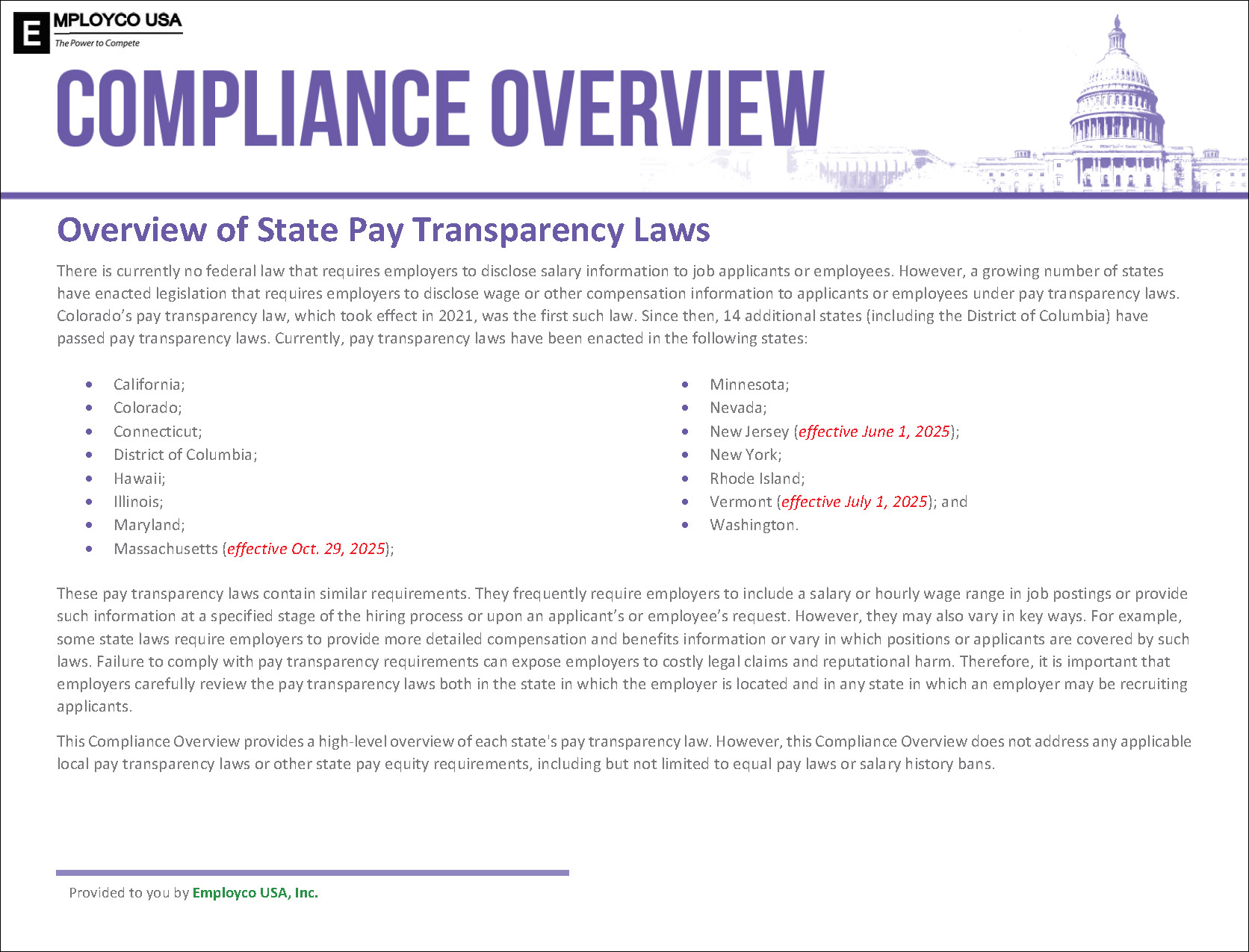
There is currently no federal law that requires employers to disclose salary information to job applicants or employees. However, a growing number of states have enacted legislation that requires employers to disclose wage or other compensation information to applicants or employees under pay transparency laws. Colorado’s pay transparency law, which took effect in 2021, was the first such law. Since then, the District of Columbia and 14 additional states (including California, Illinois, and New York) have passed pay transparency laws.
These pay transparency laws contain similar requirements. They frequently require employers to include a salary or hourly wage range in job postings or provide such information at a specified stage of the hiring process or upon an applicant’s or employee’s request. However, they may also vary in key ways. For example, some state laws require employers to provide more detailed compensation and benefits information, or vary in which positions or applicants are covered by such laws. Failure to comply with pay transparency requirements can expose employers to costly legal claims and reputational harm. Therefore, it is important that employers carefully review the pay transparency laws both in the state in which the employer is located and in any state in which an employer may be recruiting applicants.
This Compliance Overview provides a high-level overview of each state’s pay transparency law. However, this Compliance Overview does not address any applicable local pay transparency laws or other state pay equity requirements, including but not limited to equal pay laws or salary history bans.
